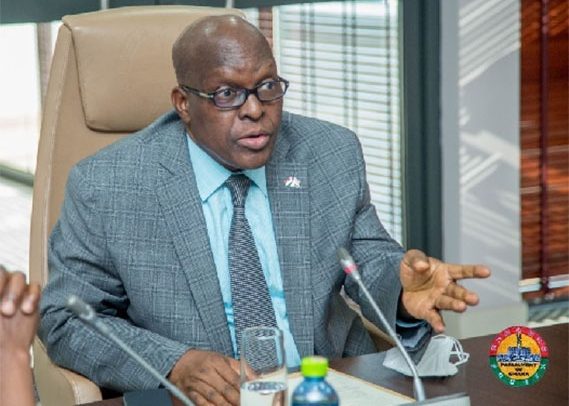Alban Sumana Kingsford Bagbin
Speaker of Parliament, Alban Sumana Kingsford Bagbin, has cautioned that the country’s parliamentary democracy risks being weakened if the overwhelming Majority in the current House uses its numbers to suppress the Minority.
He stressed that the strength of a democracy is measured by how it protects the Minority and national interest, and not how the Majority asserts dominance.
Speaking at a media engagement with editors and senior journalists in Accra, the Speaker said the Ninth Parliament’s composition, with 189 MPs aligned with the government and 87 in opposition, places an even greater responsibility on the Speaker to act as a stabilising force.
“If I do not protect the Minority, you will not have a democratic Parliament. We must not allow the Majority to use its numbers to bully or stifle the Minority. In a democracy, the national interest, not partisan interest, must have its way,” he stated.
He emphasised that Parliament must strive to operate beyond party lines, insisting that the Speaker’s role is to remain impartial, guided by what is best for the country rather than political loyalty.
Call for Institutional Reforms
Mr. Bagbin used the forum to renew his long-standing call for the separation of the Attorney-General’s office from the Ministry of Justice, arguing that merging the two was a historical misstep that weakened institutional independence.
“I am totally against fusing the Attorney General and Minister of Justice. After independence, they were separate. It was academia that confused itself and combined them. We must correct this going forward,” he said.
He also proposed legislative reforms to support Parliament’s operational independence.
This includes a Parliamentary Transition Act to clearly manage changes in parliamentary leadership and procedure after elections; stronger in-house legal and constitutional advisory systems; and security arrangements that allow Parliament to control its own space, particularly during presidential addresses.
Inclusivity and Modernisation
The Speaker outlined efforts to make Parliament more inclusive, including new Standing Orders that allow MPs to speak in local languages and the introduction of sign language interpretation.
However, he acknowledged that logistical and infrastructural limitations make full implementation challenging, noting that the current chamber was originally built as a conference hall, not for parliamentary acoustics or modern ICT systems.
He also highlighted the need for specialised parliamentary journalists, especially now that all committee sittings are open to the media.
“Committee work is where most of Parliament’s real debate takes place. Journalists covering Parliament must specialize. Without that, citizens cannot be fully informed,” he said.
Parliament and Role of the Media
Mr. Bagbin praised the media for its contribution to the democratic reputation internationally but urged government to support the media sector with standardised conditions of service, arguing that journalism serves the public good, not private interest.
“The products the media produce are not private goods. They are public goods, essential to our survival as a nation,” he said.
The Speaker added that challenges such as rising donor fatigue and misinformation make it even more important for the state to support and protect credible media institutions.
By Ernest Kofi Adu, Parliament House


